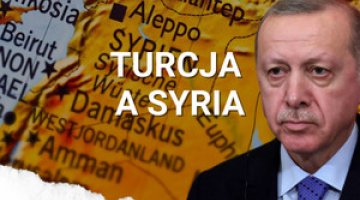Turkey’s Syrian dilemmas: success and the road ahead
On 15 January, a meeting between Turkish officials and representatives of Syria’s interim government took place in Ankara. It was held in a 3+3 format, involving Turkey’s foreign minister, defence minister and intelligence chief as well as their Syrian counterparts from the newly formed government led by Hay’at Tahrir al-Sham (HTS). The meeting was followed by a joint press conference of Turkish Foreign Minister Hakan Fidan and his Syrian counterpart Asaad Hassan al-Shibani, during which Fidan pledged Turkey’s full support for the HTS government and announced plans to reopen the Turkish consulate in Aleppo. Al-Shibani also held a meeting with President Recep Tayyip Erdoğan.
The talks in Ankara highlight Turkey’s determination to play a leading role in stabilising Syria. However, the Turkish government faces a number of challenges, including suppressing pro-autonomy tendencies among Syrian Kurds, creating the necessary political and economic conditions for repatriating refugees and cementing the pro-Turkish orientation of the new government in Damascus.
Commentary
- The Turkish government aims to play a pivotal role in the stabilisation and reconstruction of Syria. This is reflected in its efforts to mediate in the process of lifting international sanctions against Syria and its pressure on Western partners in this regard. Turkey has also sought to bolster the new government’s legitimacy through actions such as resuming Turkish Airlines flights to Damascus and reopening its consulate in Aleppo, following the earlier reopening of its embassy in Damascus. Furthermore, it has expressed its desire to support the fight against terrorist organisations, primarily the Kurdistan Workers’ Party (PKK) and the so-called Islamic State (IS). It has also emphasised the need to ensure a peaceful transition in Syria and establish stable state institutions, such as the military and public administration. Through these efforts, Turkey seeks to position itself as the key player and an indispensable international partner in the process of stabilising Syria.
- For Turkey, the primary objective in its ongoing rapprochement with the HTS government is to resolve the Kurdish issue in northern Syria. It hopes that the inclusion of minority groups in the process of forming a new Syrian cabinet will lead to the dismantling of the de facto Kurdish autonomy, known as Rojava. This would separate Kurds willing to cooperate with the government in Damascus from the PKK. Turkish officials believe that such a move would weaken the PKK and pave the way for its eventual elimination. At the same time, Turkey’s declaration of its readiness to combat terrorist groups, including the IS, has sent a signal to the new US administration. Currently, the United States supports the Syrian Democratic Forces (SDF) in northern Syria, using them primarily for operations against the IS. Turkey, for its part, views the SDF as closely linked to the terrorist-designated PKK. By signalling its willingness to fight the IS, Turkey likely aims to secure concessions from incoming US President Donald Trump, particularly the cessation of US military support for the SDF in northern Syria.
- Turkey’s ambitions in Syria will face a series of tests and challenges. Aside from combating Kurdish terrorism, one of the most serious of these will be to maintain the pro-Turkish stance of the current government in Damascus. The HTS interim government may seek to diversify its political and economic partners, particularly by strengthening ties with the Gulf states, which are likely to become the primary source of financial support for Syria’s crisis-stricken economy. Turkey lacks comparable financial resources, partly due to its ongoing economic crisis. For this reason, a delegation of government officials from Damascus first travelled to Saudi Arabia, the United Arab Emirates and Qatar. Consequently, Syria is likely to become a battleground for competition between Turkey and wealthier regional players, which could undermine Ankara’s interests in Damascus.
- Inside Turkey, the fall of Bashar al-Assad’s regime has strengthened the political position of President Erdoğan and the Justice and Development Party (AKP). The change of power in Syria has been portrayed as a success of Turkey’s foreign policy and a testament to its global standing, boosting support for the ruling party, which has been weakened by the economic crisis and the defeat in last year’s local elections. In public perception, stabilising the situation in Syria also paves the way for the return of refugees, whose population in Turkey currently stands at three million. In recent years, their presence has increasingly become a source of public discontent and social tensions, something that the Turkish opposition has capitalised on. However, these returns are not yet occurring on a large scale; according to official data, only 50,000 Syrians have left Turkey since last December. For this reason, the Turkish government is eager to achieve political and economic stabilisation in Syria in order to create the conditions for mass returns in the future.





